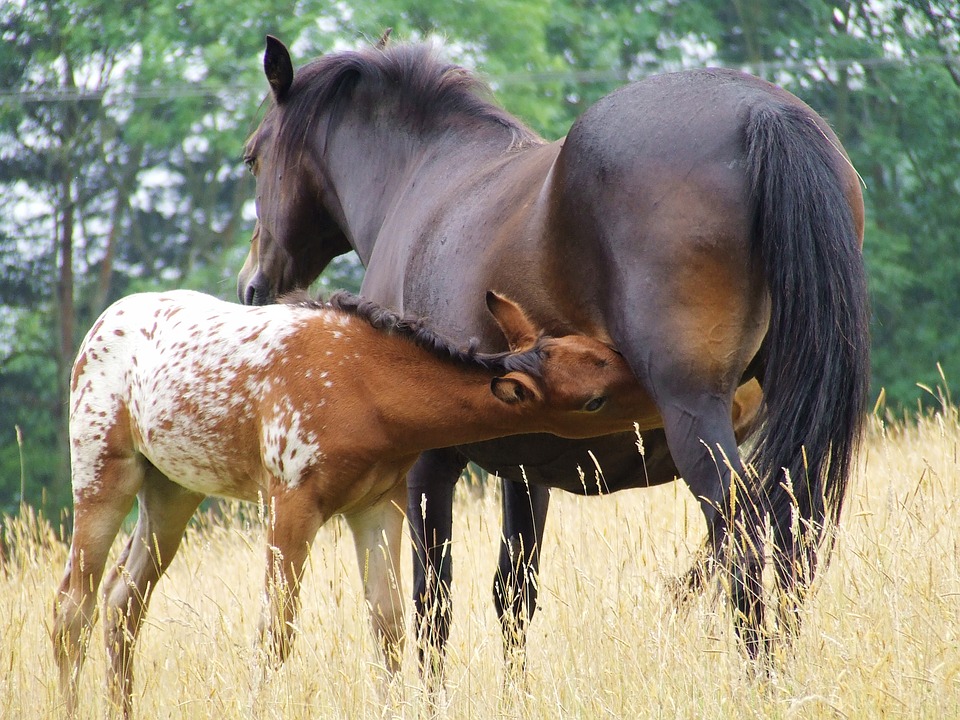Giving Equine Herpes Virus the wobbles

Work aimed at developing a new vaccine to protect against abortigenic and neurological equine herpes virus (EHV) has begun at veterinary charity, the Animal Health Trust (AHT).
Dr Neil Bryant of the AHT, who is leading the research, said: “EHV is a major welfare concern for horses and foals and causes emotional, as well as financial strains, on horse owners and breeders around the world. It can strike any horse at any time so a vaccine will be of global welfare benefit to all horses, including the Thoroughbred and sports horse breeding industries, and would help control this serious and sometimes fatal disease.”
As a viral infection, EHV can cause respiratory disease, abortion or fatal illness in new born foals and neurological disease in adult horses, with signs ranging from slight wobbliness through to complete paralysis. The disease can strike any horse at any time because the virus, like other herpesviruses (such as the cold sore virus in humans), becomes dormant within most horses early in their life. It then re-emerges when the animal is later stressed such as when transported or mixed with new horses. A seemingly healthy pregnant mare may suddenly, and without warning, abort her unborn foal or may show signs of respiratory disease including mild fever, coughing and discharge from the nose. A horse which appears fit and well may suddenly show abnormalities when walking and within hours may be unable to stand.
Despite the potential severity and impact of outbreaks, there is still no vaccine that is licensed to protect against the neurological form of the disease and abortions still occur in highly vaccinated horse populations. Protection afforded by existing vaccines currently in use is sub-optimal, and this was highlighted by the 2016 abortion storm in Hertfordshire in fully vaccinated animals.
Dr Bryant said: “We have become aware of a pressing need for progress towards a new and improved EHV-1 vaccine. Just last month, the AHT was again called upon to work with the racing industry and affected parties in dealing with confirmed cases of EHV-1 abortion in premises in Yorkshire and Suffolk.”
Identifying this need has led the veterinary charity to establish and host meetings of an Equine Industries EHV Vaccine Steering Group. The steering group, chaired by Professor Joe Brownlie of the RVC, includes world-renowned experts on both human and equine herpes viruses from a number of research establishments. After careful consideration of the published literature and extensive scientific discussions, the group has agreed that the most appropriate way forward is for the AHT to design a modified live virus (MLV) vaccine.
Trustees of the AHT, Professor David Silk and David Ellis, along with Professor Sidney Ricketts and Professor Joe Brownlie, have been incredibly influential in pulling the project together. Their efforts have helped inspire a large group of funders from the Thoroughbred world to support and fund this important vaccine research. Thanks to significant support from Alborada Trust, EBM Charitable Trust, Horserace Betting Levy Board and the Racing Foundation, Paul Mellon Estate, Thompson Family Charitable Trust, Coolmore Ireland, Newsells Park Stud, Thoroughbred Breeders’ Association and Juddmonte Farms, the AHT has begun its five-year research programme.
Dr Kirsten Rausing DL, of the Alborada Trust, said: “My trustees and I proudly support world-class veterinary research. The Alborada Trust has made a major commitment to this new and very important project. Alongside the other major funders, we are all determined to tackle the suffering and loss caused by EHV though effective vaccination.”
Professor Silk added: “I have been very happy to have been associated with this research project. Funding for it has been truly international with contributions coming from horsemen based in Europe, the US, and the Gulf States. This international funding has supplemented the very significant donations the AHT has received from our UK supporters. I am certain that our quest to develop an effective vaccine will succeed.”
Dr Bryant added: “We’re at the beginning of a very exciting and potentially ground-breaking vaccine development. Through our research, we will construct different viruses with attenuating mutations and assess their suitability as MLVs. We hope our findings will enable further development by vaccine manufacturers in creating an effective vaccine to protect against the serious clinical signs induced by EHV-1.”
Source: Animal Health Trust UK

